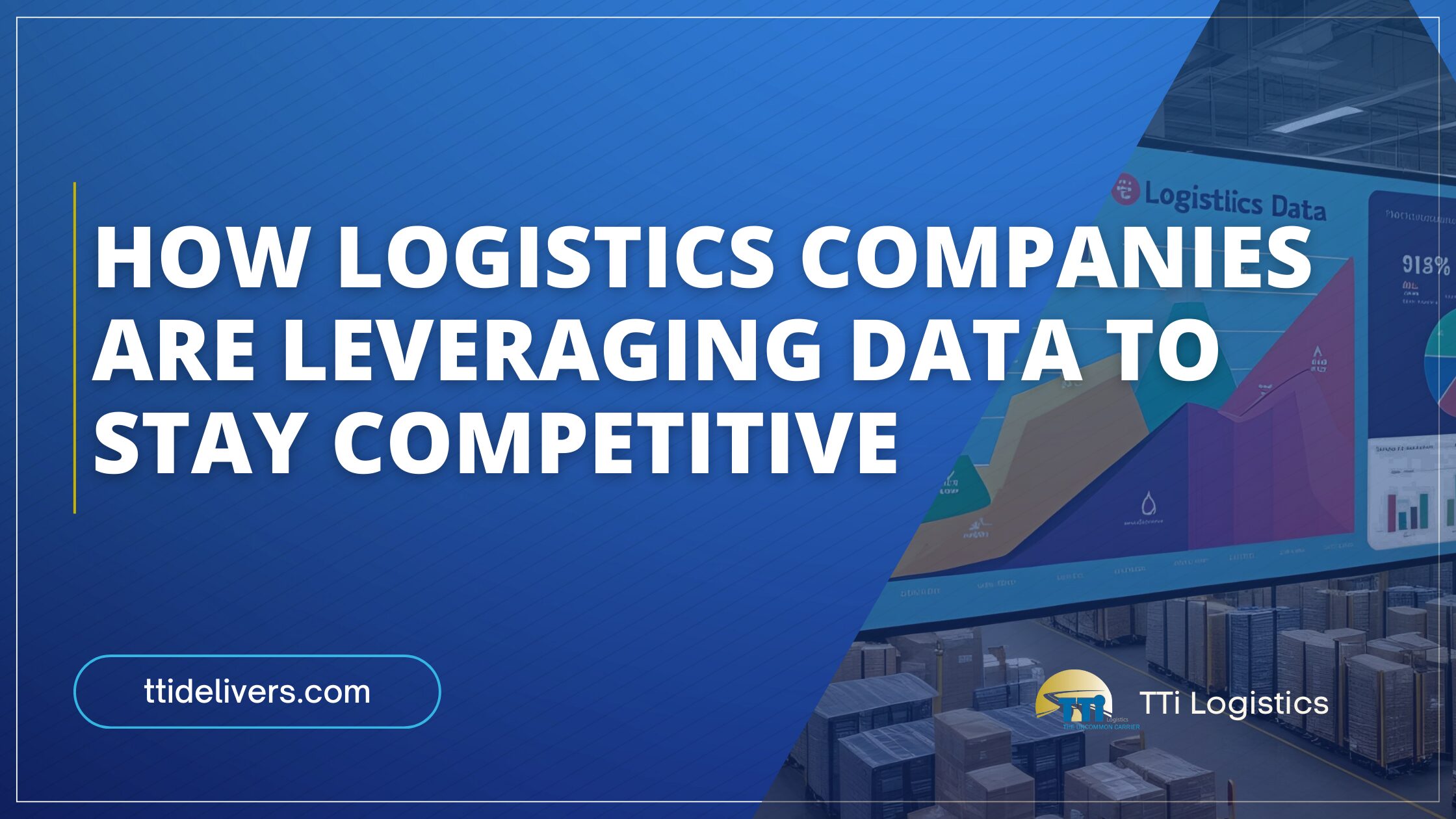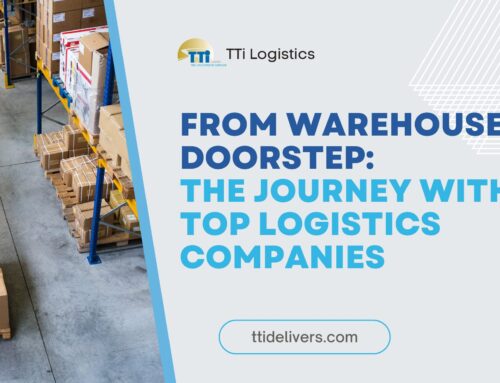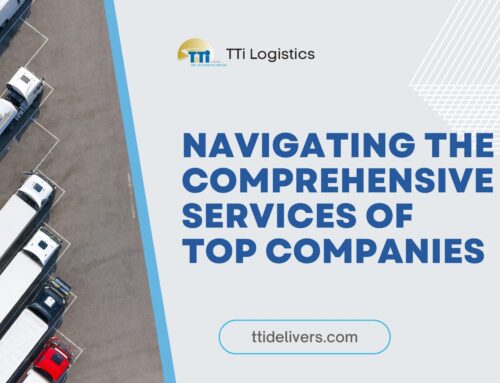In today’s rapidly evolving supply chain landscape, data has become one of the most valuable resources for logistics companies. Those who embrace data-driven logistics are not just keeping up—they’re leading the way. From predictive analytics to real-time tracking, data-driven logistics is transforming how goods move, how services are delivered, and how customer expectations are exceeded.
For logistics providers looking to stay competitive, becoming truly data-centric is no longer optional. It’s a strategic imperative.
What Is Data-Driven Logistics?
Data-driven logistics refers to the use of real-time and historical data to guide decision-making across the entire supply chain. It includes technologies and techniques that gather, analyze, and apply insights from multiple sources—including transportation management systems, warehouse software, IoT sensors, GPS tracking, customer behavior, and more.
Rather than relying on gut instinct or outdated methods, logistics companies using data-driven logistics make informed decisions that improve speed, reduce costs, and increase service accuracy. These insights help businesses optimize inventory, streamline routing, prevent disruptions, and enhance customer satisfaction.
Why Data-Driven Logistics Is a Game Changer
The adoption of data-driven logistics is transforming the industry in several key ways:
- Improved Forecasting: By analyzing historical demand, seasonal trends, and external variables, companies can forecast needs more accurately and plan inventory accordingly.
- Greater Efficiency: Data analytics uncovers inefficiencies in routes, loads, labor, and warehouse operations, helping logistics companies become leaner and faster.
- Better Risk Management: With predictive analytics, companies can proactively respond to weather disruptions, supplier delays, and shifting demand patterns.
- Enhanced Visibility: Real-time tracking powered by data-driven logistics offers customers and managers complete transparency throughout the shipment journey.
Logistics companies that embrace data can act, react, and even predict outcomes with unprecedented precision.
Key Technologies Powering Data-Driven Logistics
The rise of data-driven logistics is supported by a range of advanced technologies:
1. Internet of Things (IoT)
IoT sensors embedded in trucks, containers, and warehouse shelves collect real-time data on temperature, location, condition, and more. Logistics companies use this data to track shipments down to the pallet level, monitor cold chain compliance, detect delays, and trigger automated alerts when a shipment is off course or compromised. This improves accountability and responsiveness across the supply chain. This data is essential for perishable goods, high-value shipments, and monitoring transit efficiency.
2. Artificial Intelligence (AI) and Machine Learning (ML)
AI enables logistics companies to process vast amounts of data and generate actionable insights. Machine learning algorithms are used to predict delivery delays based on past traffic patterns, optimize warehouse picking routes, and even identify which customers are most likely to cancel or return orders—allowing companies to adjust proactively. Machine learning algorithms continuously improve forecasting, route planning, and risk mitigation.
3. Transportation Management Systems (TMS)
TMS platforms centralize transportation planning, execution, and performance monitoring. Logistics providers use these systems to run simulations for cost and time efficiency, consolidate shipments, reduce deadhead miles, and compare carrier performance metrics. This supports smarter dispatching and more efficient fleet utilization. They are a cornerstone of data-driven logistics by enabling smarter dispatching and route optimization.
4. Warehouse Management Systems (WMS)
WMS platforms enhance inventory accuracy, space utilization, and picking efficiency. Logistics companies implement WMS to dynamically adjust storage layouts based on incoming stock, reduce picking errors through barcode and RFID scanning, and forecast restocking needs in real time to avoid overstock or shortages.—all thanks to data insights that improve warehouse workflows.
5. Blockchain Technology
Blockchain adds security and transparency to data-driven logistics by creating tamper-proof digital ledgers for transactions and traceability. It is being used to validate each step in the supply chain—such as verifying origin, authenticity, and handling conditions—especially for high-value or regulated goods like pharmaceuticals and luxury items. by creating tamper-proof digital ledgers for transactions and traceability.
Real-World Applications of Data-Driven Logistics
1. Route Optimization
By using GPS data, traffic patterns, and historical delivery performance, data-driven logistics companies can continuously update and optimize delivery routes, saving time and fuel.
2. Demand Forecasting
Retailers and suppliers rely on data-driven logistics to predict demand spikes, ensuring the right inventory is in the right place at the right time. This helps avoid stockouts or overstocks.
3. Predictive Maintenance
Fleet operators use telematics and sensor data to monitor vehicle health. This proactive approach reduces downtime and repair costs.
4. Real-Time Shipment Visibility
Customers now expect to track their packages in real time. Data-driven logistics enables that visibility, boosting customer trust and loyalty.
5. Inventory Management
Companies use data to adjust inventory levels in real time, improve turnover rates, and avoid storage overflow.
Competitive Advantages of Data-Driven Logistics
Logistics companies adopting a data-driven logistics strategy enjoy measurable benefits:
- Cost Reduction: Lower fuel costs, fewer errors, and reduced downtime result from better planning.
- Customer Satisfaction: Real-time updates and faster deliveries improve client experiences.
- Operational Agility: Companies can pivot quickly when disruptions occur.
- Sustainability: Fewer empty miles and smarter packaging contribute to greener logistics.
In a world where speed, accuracy, and transparency are non-negotiable, data-driven logistics gives companies the edge.
Challenges in Implementing Data-Driven Logistics
Despite its advantages, adopting data-driven logistics does come with challenges:
- Data Silos: Integrating data across systems and departments can be difficult.
- Upfront Costs: New technologies require investments in infrastructure, tools, and training.
- Data Quality: Poor data input leads to flawed insights.
- Cybersecurity Risks: More data means more risk of breaches without proper protection.
Companies must approach data-driven logistics with a plan to ensure clean, secure, and actionable data across all platforms.
Getting Started with Data-Driven Logistics
For logistics companies ready to embrace transformation, here are a few steps to begin your data-driven logistics journey:
- Audit Current Data Assets: Know what data you already collect and identify gaps.
- Invest in Scalable Technology: Choose platforms that integrate well with your existing infrastructure.
- Train Your Team: Make data literacy a priority at every level.
- Start Small: Pilot data-driven logistics initiatives in one area and scale based on ROI.
- Partner with Experts: Work with logistics providers and consultants who specialize in data analytics and digital transformation.
Success in data-driven logistics requires a combination of the right tools, culture, and strategic vision.
Looking Ahead: The Future of Data-Driven Logistics
As e-commerce accelerates and customer expectations climb, data-driven logistics will continue to gain importance. We can expect increased use of autonomous delivery systems, drone logistics, and even smarter warehouses fueled entirely by real-time data.
The logistics companies of tomorrow won’t just move goods from point A to point B—they’ll do it with intelligence, agility, and accuracy.
Embracing a Smarter, Faster Future
Data-driven logistics is no longer a competitive advantage—it’s a requirement. Companies that fail to embrace this shift risk falling behind. But those who lean in will uncover opportunities for optimization, innovation, and long-term growth.
At TTi Logistics, we understand the power of data. From route planning to inventory tracking, we help clients unlock smarter logistics solutions using a data-first mindset.







